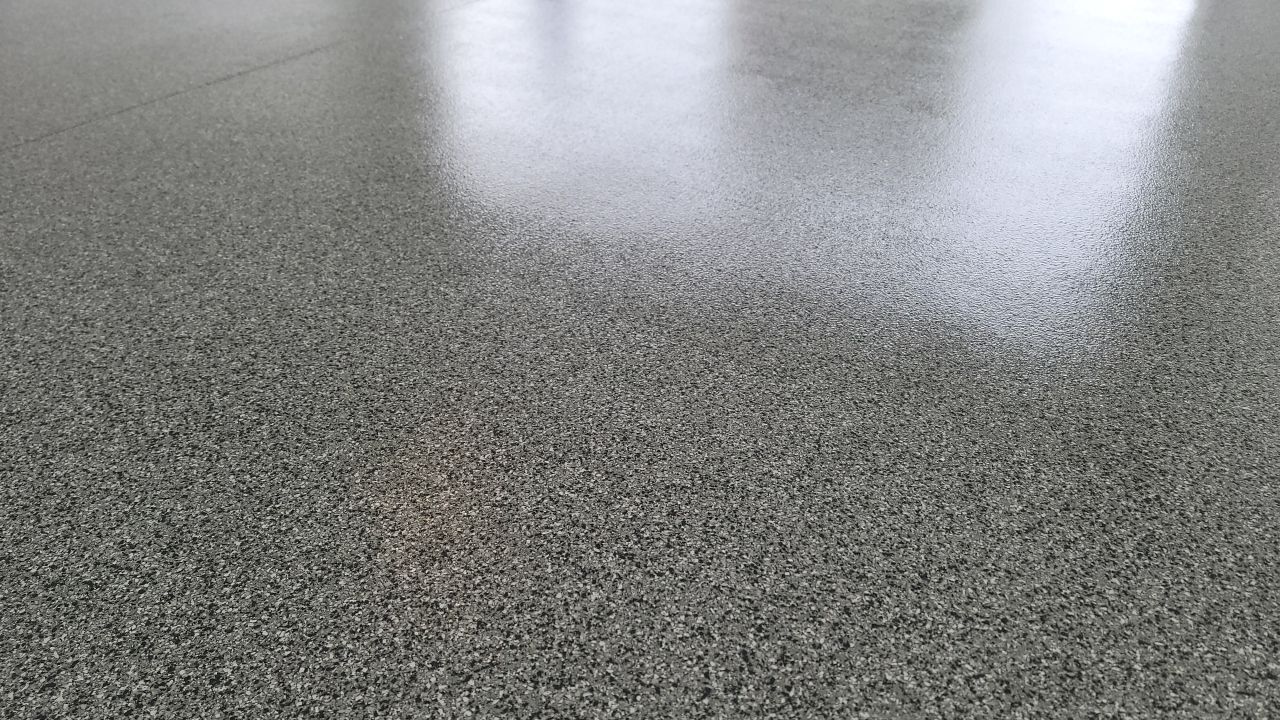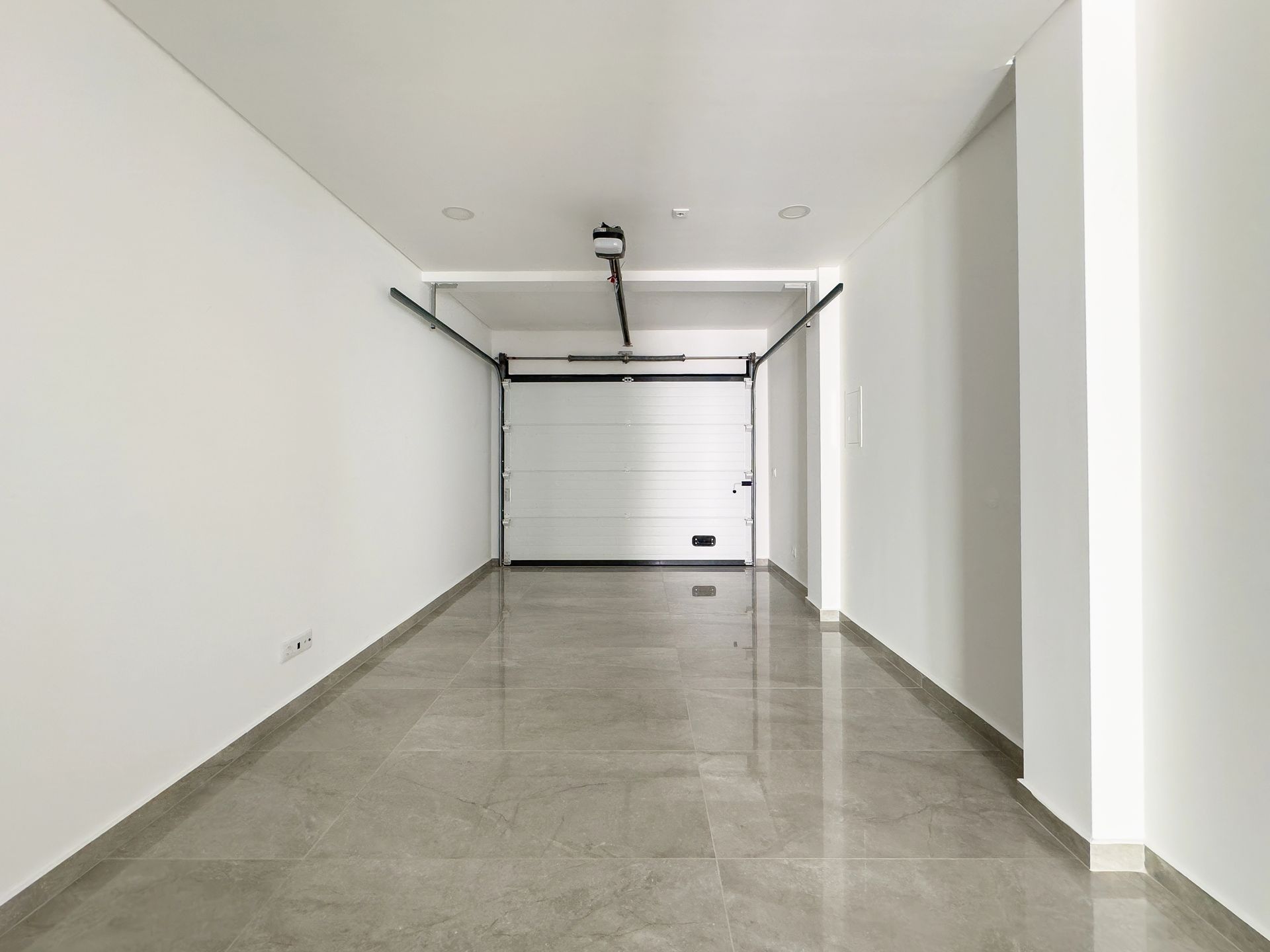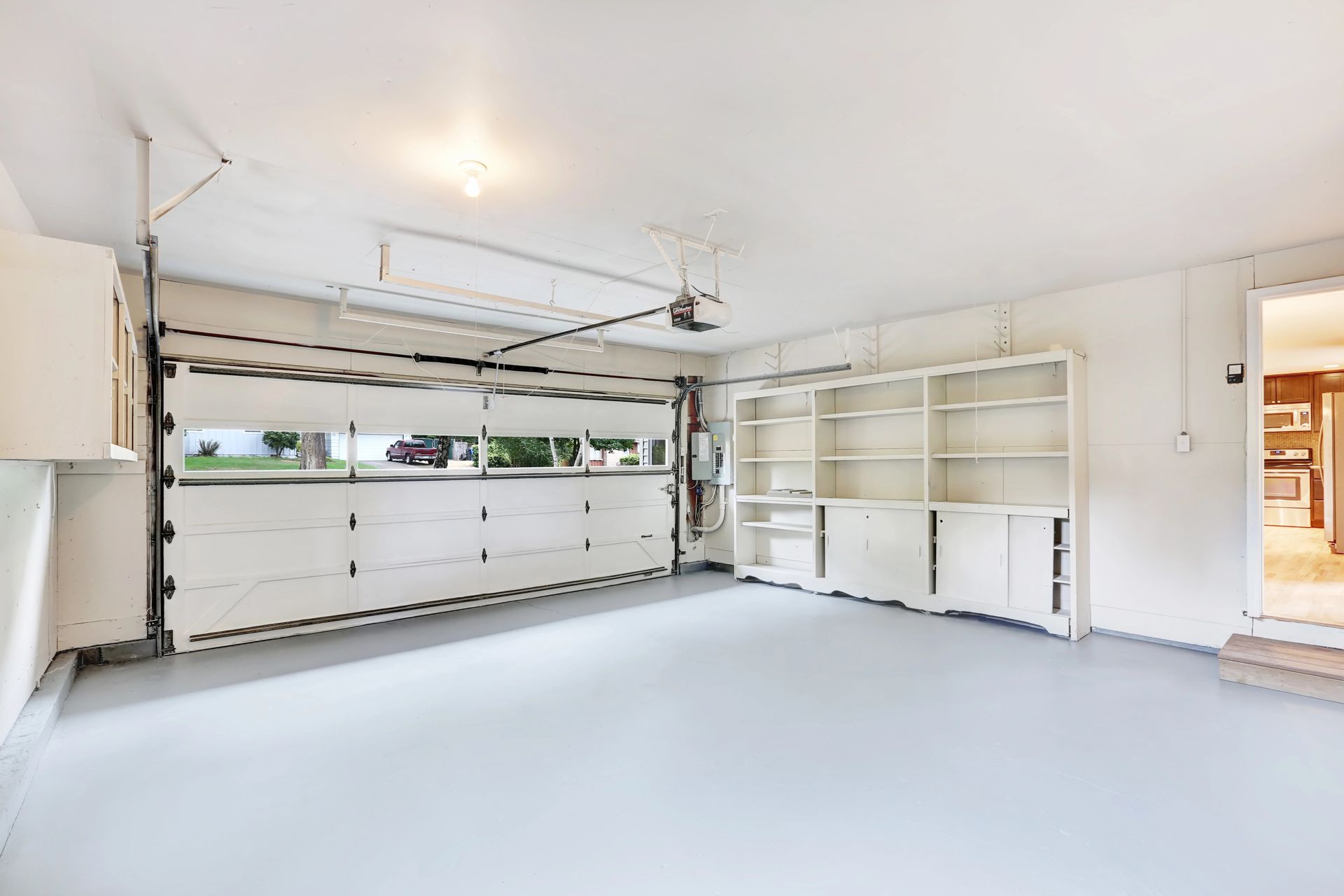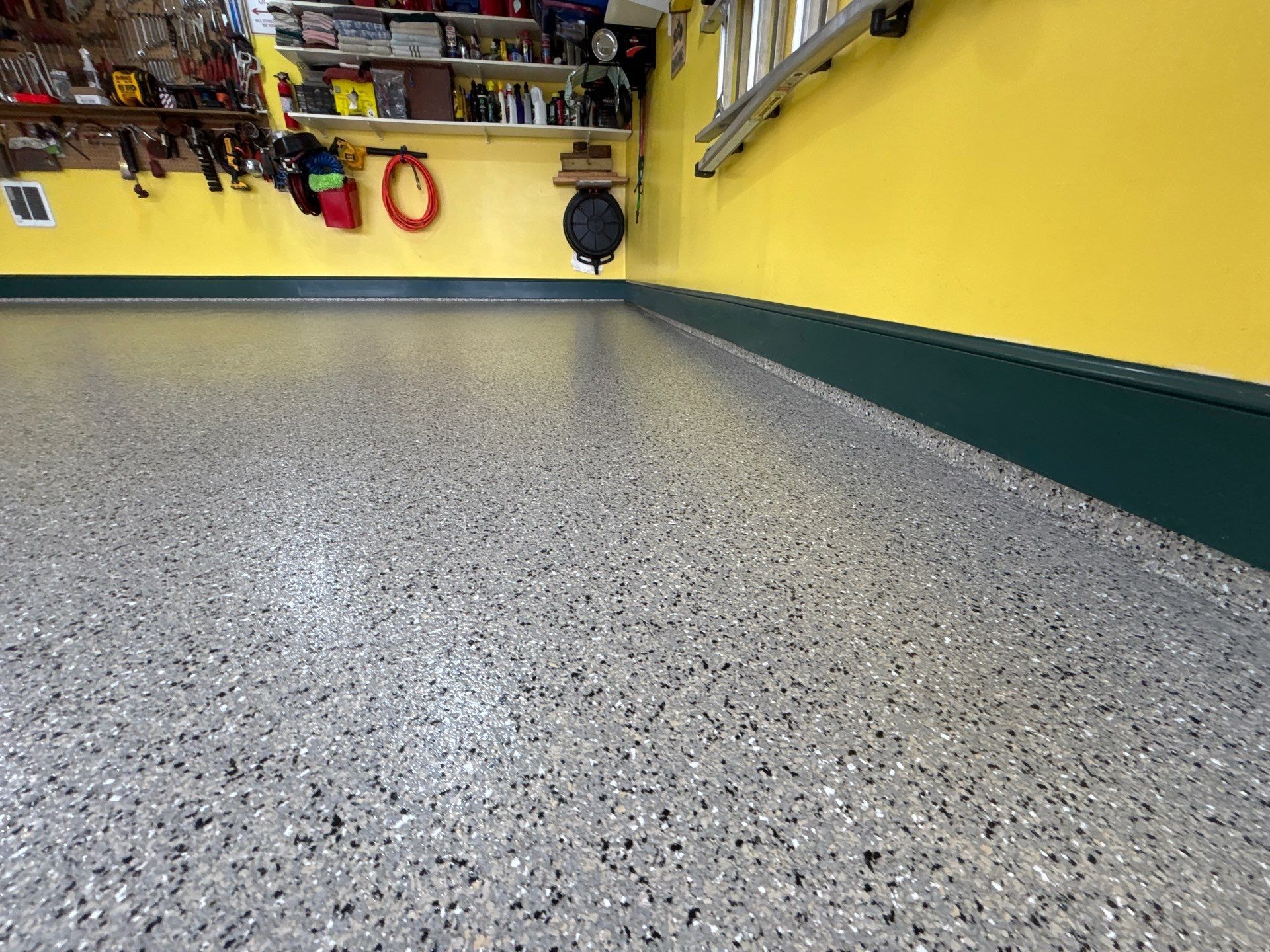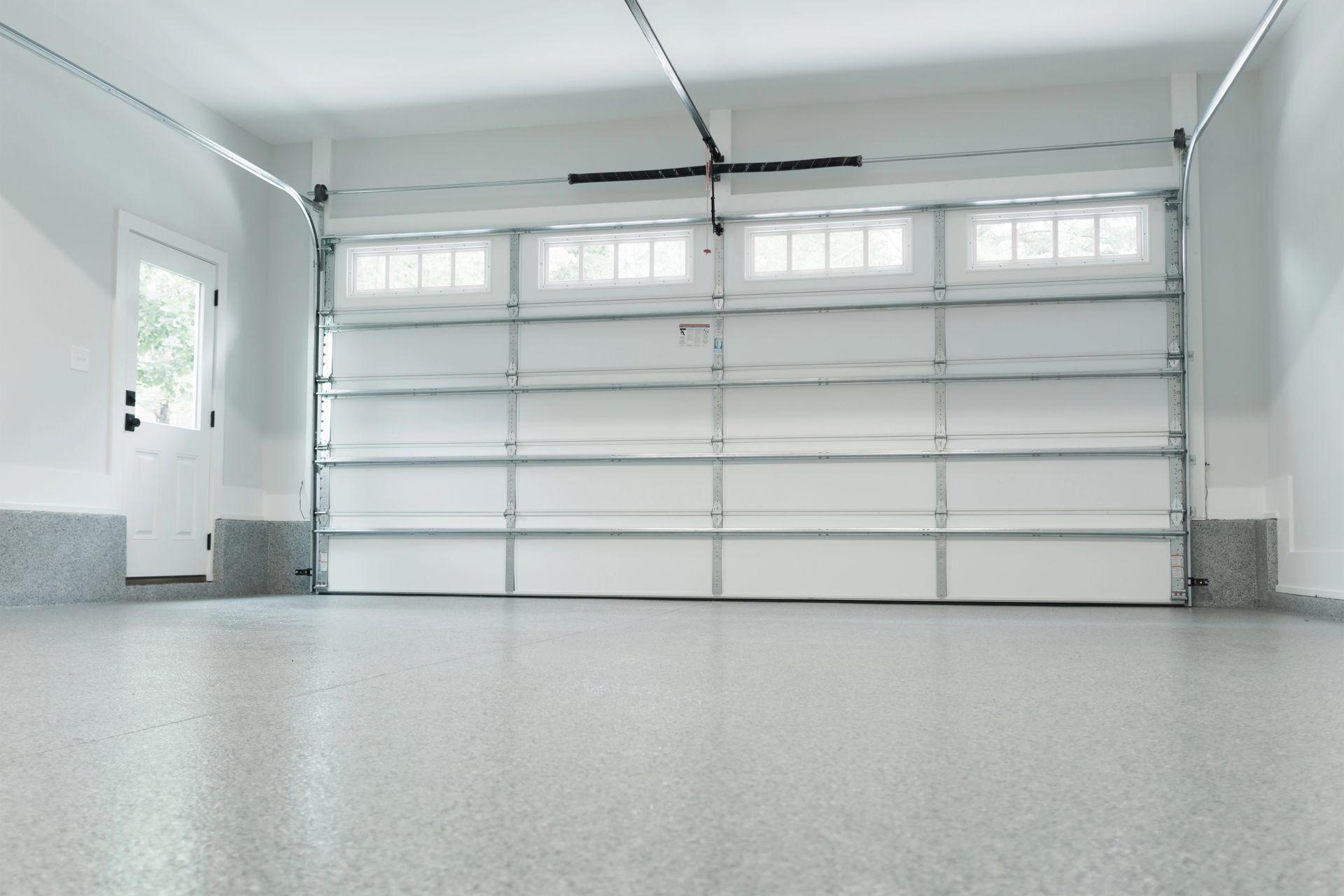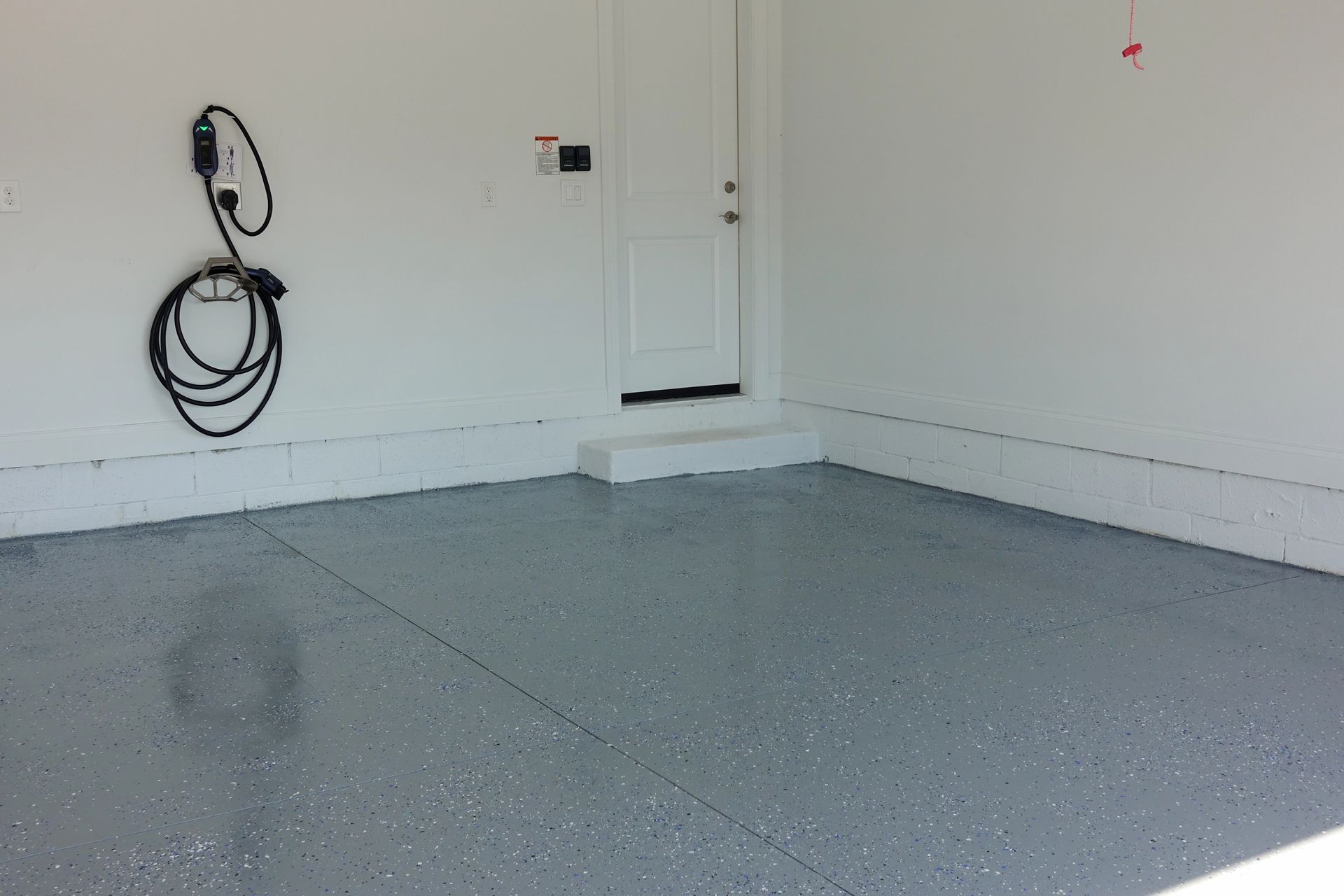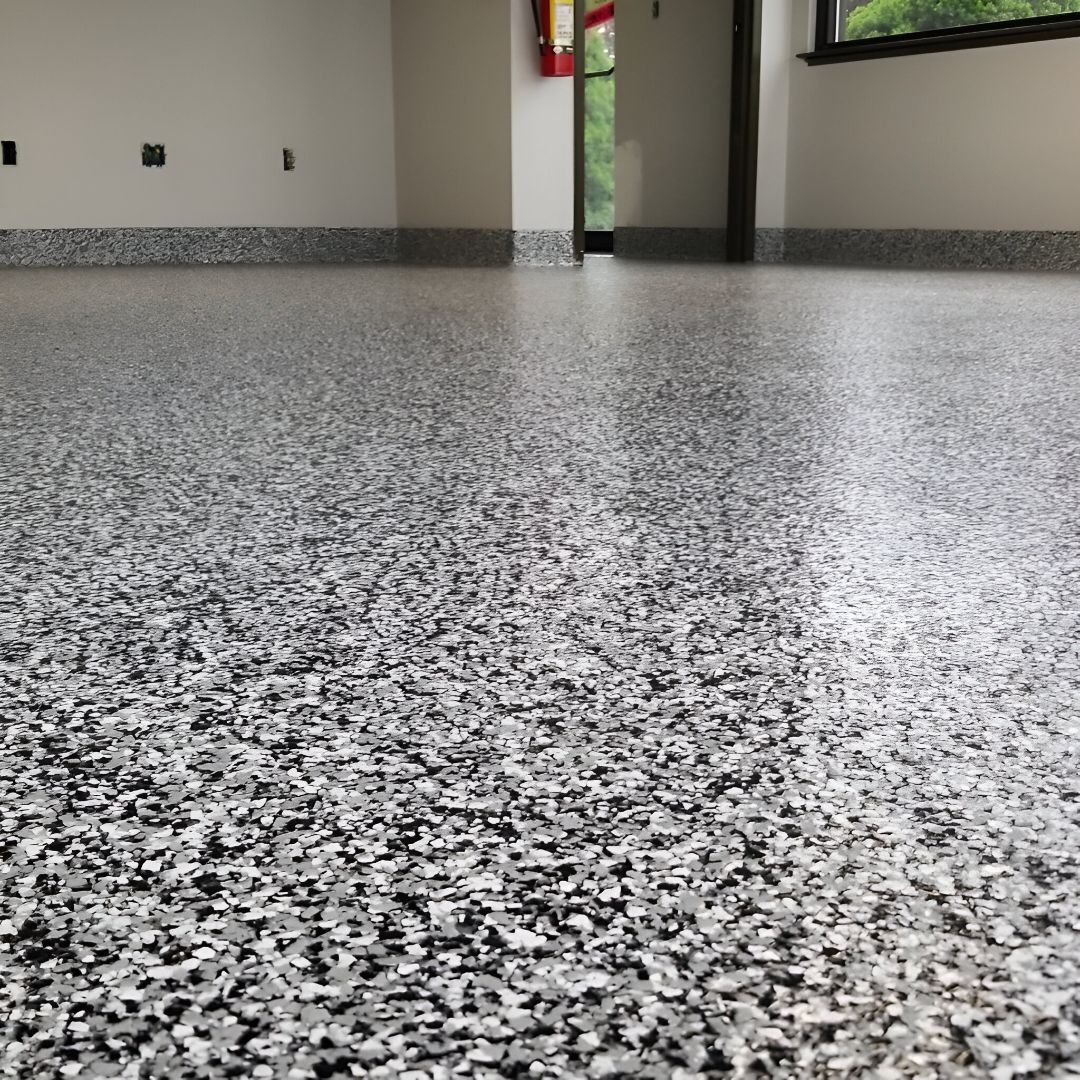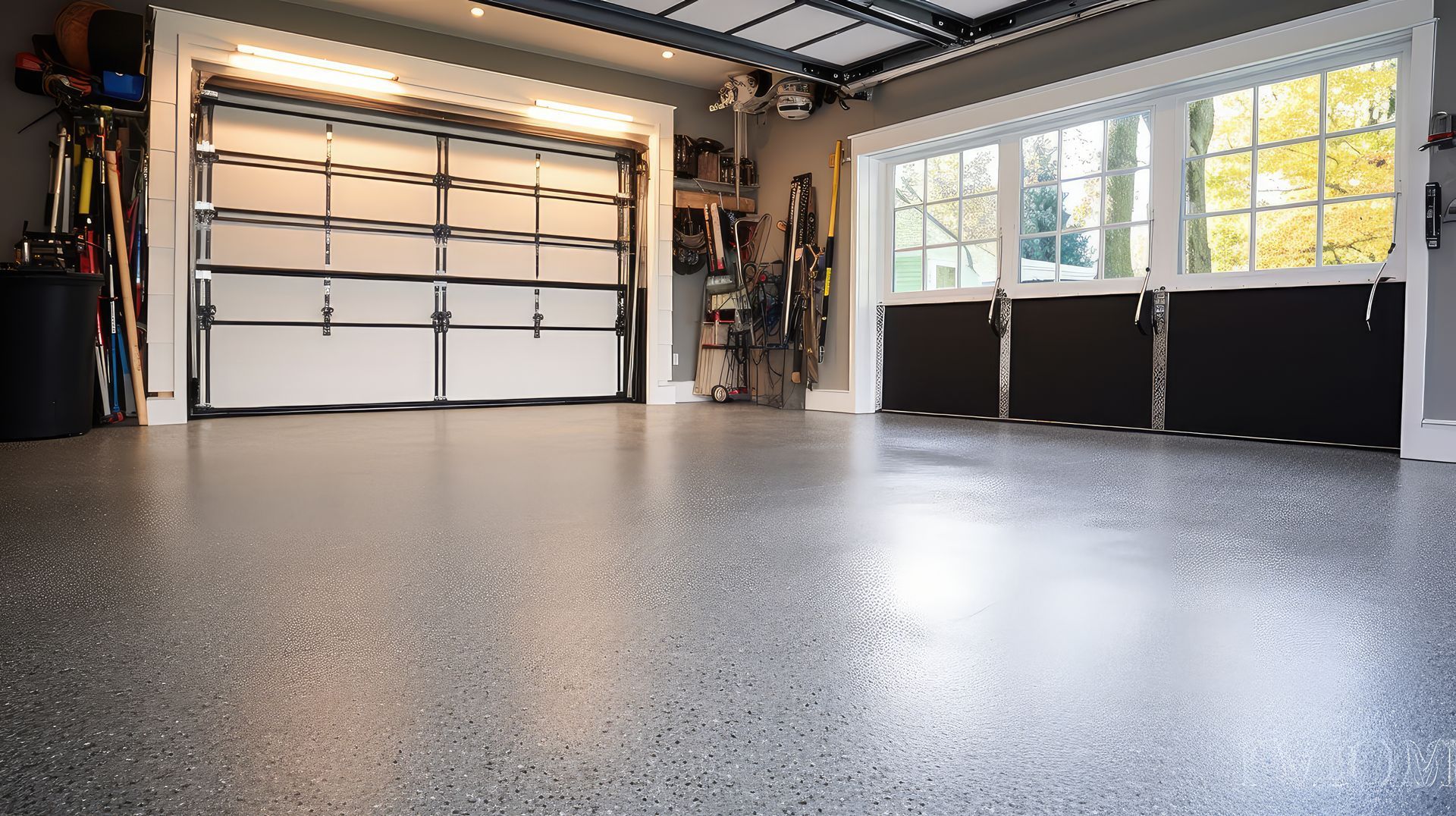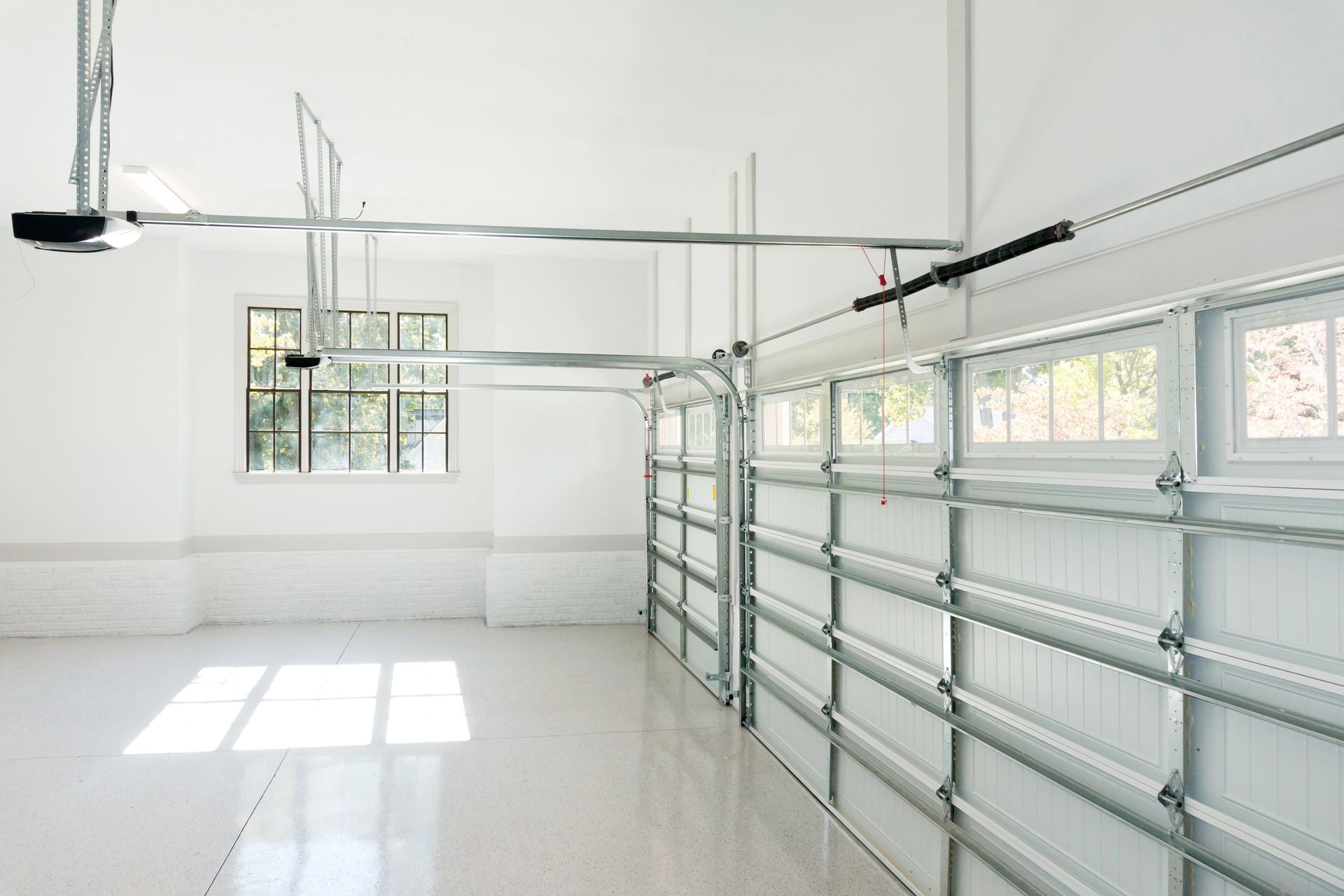Epoxy vs. Polyurea vs. Polyaspartic: The Difference Between Garage Floor Coatings
Key Takeaways
- Epoxy has been the traditional choice, but it often falls short on durability, especially under the demands of everyday garage use.
- PR Painting uses advanced polyurea systems, delivering the flexibility, stain resistance, and long-lasting performance that homeowners in Pennsylvania need.
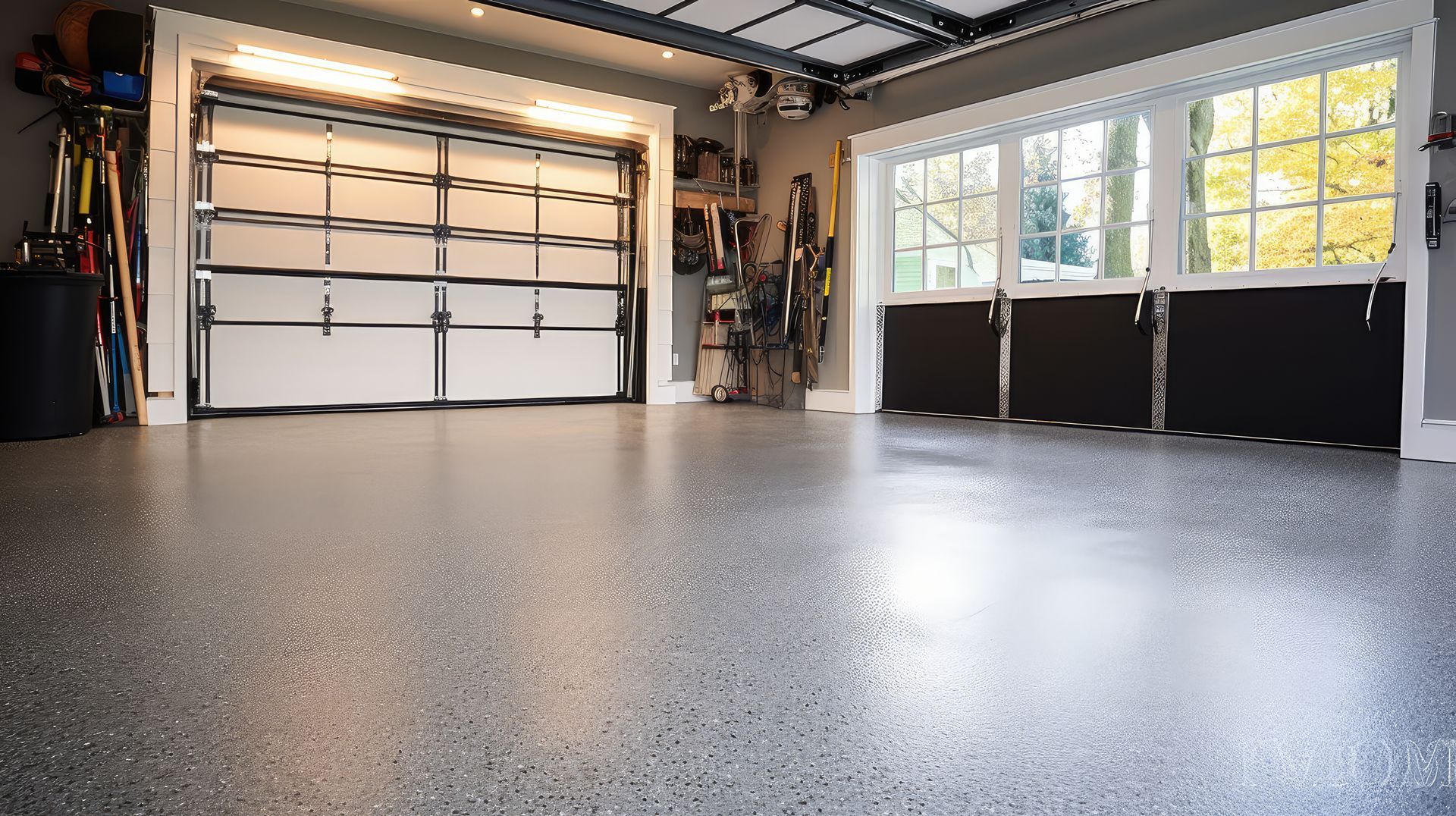
If you’re exploring garage floor coatings, you’ll come across three common terms: epoxy, polyurea, and polyaspartic. At first glance, they may all seem similar—just different ways to cover up concrete. But in reality, these coatings vary in durability, flexibility, and performance.
At PR Painting, we’ve seen the pros and cons of each system in both commercial and residential projects. Our approach is simple: bring commercial-grade expertise and advanced technology into your home to ensure your garage floor is as tough as it is attractive .
Epoxy Garage Floors: The Old Standard
Epoxy has been around for decades and is still widely used. It’s often the go-to material in DIY kits or entry-level installations.
- Pros:
- Lower upfront cost.
- Readily available and familiar to many homeowners.
- Offers decorative color and flake options.
- Cons:
- Rigid structure makes it more prone to cracking or peeling.
- Vulnerable to stains from oil, gas, and chemicals.
- Can discolor over time, especially in sunny garages.
The takeaway: Epoxy looks good initially, but its limitations often show up quickly in an active household garage.
Polyurea Garage Floors: The Modern Solution
Polyurea represents a significant upgrade over traditional epoxy. Originally designed for demanding commercial and industrial settings, it’s now available for homeowners who want a floor that’s built to last.
- Pros:
- Flexibility: adapts to the natural movement of concrete, especially important in Pennsylvania’s freeze-thaw climate.
- Enhanced stain resistance: stands up to oil, salt, and chemical spills.
- Durability: resists chips and abrasions from daily garage use.
- Advanced technology: designed to outperform standard coatings in both appearance and longevity .
- Cons:
- Higher upfront investment compared to epoxy.
- Requires professional installation for best results.
The takeaway: Polyurea offers the right balance of strength and performance, making it an excellent long-term choice for homeowners.
Polyaspartic: A Polyurea Variation
Polyaspartic is actually a type of polyurea with unique chemical properties. It’s often used in combination with polyurea systems to fine-tune appearance and performance.
- Pros:
- Strong resistance to wear and tear.
- Helps preserve color and finish over time.
- Adds another layer of protection when combined with polyurea.
- Cons:
- Like polyurea, requires experienced installers.
- Typically a premium option with higher initial cost.
The takeaway: Polyaspartic is best understood as part of the larger polyurea family—a valuable option for enhancing durability and finish when integrated into advanced coating systems.
Side-by-Side Comparison
| Feature | Epoxy | Polyurea | Polyaspartic |
|---|---|---|---|
| Upfront Cost | Lower | Higher | Higher |
| Durability | Fair | Excellent | Excellent |
| Flexibility | Limited | Strong | Strong |
| Stain Resistance | Limited | High | High |
| Best Use | Short-term refresh | Long-term residential garages | Premium protection/finish |
Why PR Painting Chooses Polyurea Systems
At PR Painting, we don’t just install coatings—we follow a proven process that ensures lasting results:
- Assess – We evaluate the condition of your concrete to understand what it needs.
- Plan – We design a system that matches your goals, budget, and space.
- Prep & Coat – Proper preparation and professional application are the foundation of every successful floor.
- Maintain – We provide guidance to keep your floor looking great for years.
By combining this process with polyurea technology, we deliver garage floors for Pennsylvania homeowners that don’t just look beautiful on day one but continue to perform under daily use.
Which Coating Is Right for You?
Epoxy may work for homeowners looking for a short-term, budget-friendly option.
- Polyurea is the best balance of durability, flexibility, and appearance for most residential garages.
- Polyaspartic offers premium performance when paired with polyurea systems.
If your goal is a garage floor that can withstand Pennsylvania winters, resist stains, and provide long-term value, polyurea systems from PR Painting are the clear choice.
Frequently Asked Questions
Is epoxy still a good option for garages?
Epoxy can provide a short-term refresh, but it’s less durable and more prone to peeling compared to modern systems.
What makes polyurea different?
Polyurea offers enhanced flexibility, chemical resistance, and durability—qualities that help it handle everything from hot tires to road salt.
Do I need polyaspartic too?
Polyaspartic is often used alongside polyurea to enhance appearance and long-term protection. Your installer can recommend whether it’s right for your garage.
How do I maintain my coated garage floor?
A simple routine of sweeping and occasional mopping is usually all it takes. PR Painting provides straightforward maintenance guidance with every installation .
Closing Thoughts
Not all garage floor coatings are created equal. Epoxy may seem cost-effective upfront, but its limitations make it less practical over time. Polyurea—and, in some cases, polyaspartic—deliver the strength, stain resistance, and long-lasting beauty that modern homeowners expect.
By choosing PR Painting, you’re not just getting a coating—you’re getting
commercial-grade expertise, advanced technology, and a proven process that ensures your garage floor stands the test of time .


